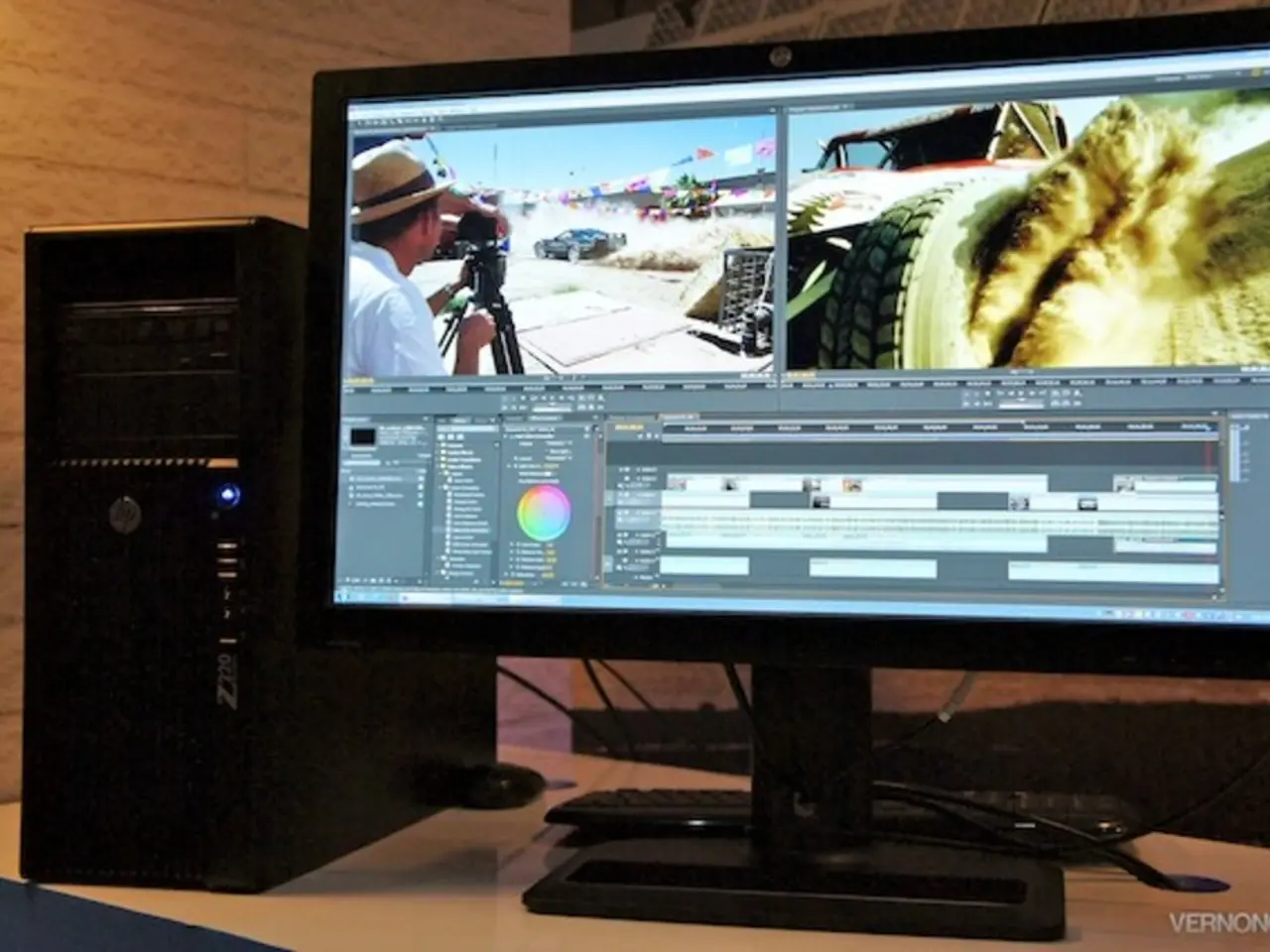Intel's 14th Gen Raptor Lake Update: Is it a Minor Adjustment or an Energy-Intensive Blunder?
The latest addition to Intel's 14th Gen Core processor family, the Core i7-14700K, offers a modest upgrade over its 13th Gen counterpart, the i7-13700K. This new CPU, part of the Raptor Lake Refresh, boasts 20 cores (8 performance cores and 12 efficiency cores) and 28 threads, with boost clocks reaching up to 5.6 GHz, maintaining the same underlying architecture and socket (LGA 1700) as its predecessor [1][3].
For gamers and tech enthusiasts, the Core i7-14700K presents an attractive option for those seeking more cores and slightly better multi-threaded performance, particularly for workflows combining gaming and creative work. The CPU supports PCIe 5.0, DDR5 and DDR4 RAM, benefiting high-end gaming rigs [1][2].
However, the performance gains mainly come from an increased number of efficiency cores (12 vs. 8 in the previous generation) and slightly higher clock speeds. The IPC (instructions per cycle) gains are minor, resulting in an incremental rather than transformative uplift [3].
One of the notable concerns with the i7-14700K is its power consumption. With a base TDP of 125W, it can draw up to 253W under Turbo mode, making it quite power-hungry and requiring robust cooling and a capable power supply. It tends to run hot under load [2][3].
In terms of pricing and value, the i7-14700K is priced similarly to the previous generation i7-13700K. Given the modest performance improvements, it may not justify an upgrade for users who already own a 13th Gen i7 unless they specifically want extra efficiency cores or higher turbo clocks [2].
The i7-14700K retains Intel's Iris Xe integrated graphics, similar to the previous generation. However, models like the i7-14700KF do not include integrated graphics, requiring a discrete GPU [1][3].
In conclusion, the i7-14700K offers a solid but evolutionary update, delivering excellent gaming and productivity performance at the cost of increased power draw. Current 12th and 13th Gen users may find the marginal performance gains don't justify the cost of upgrading. The Core i7-14700K's power consumption is a cause for concern due to its peak power draw of 428W, exceeding Intel's specified PL1/PL2 values and raising concerns about thermal throttling and overall system efficiency.
For further insights and analysis on Intel's processor lineup, refer to Intel's Official Website, Tom's Hardware CPU Reviews, and AnandTech CPU Benchmarks. It's important to note that Intel's 14th Gen feels like a transitional release, with incremental improvements and some intriguing features, but lacking substantial performance gains.
As we look to the future, Intel's next-generation Meteor Lake platform is expected to feature a new chiplet-based architecture and a revamped branding strategy (Core and Core Ultra). Intel also introduces AI Assist, a feature within their Extreme Tuning Utility (XTU) that optimizes overclocking settings based on system characteristics, but it's limited to the Core i9-14900K and KF processors [2].
[1] Intel (2023). Core i7-14700K Datasheet. Retrieved from https://www.intel.com/content/www/us/en/products/details/processors/14th-gen/core/i7-14700k.html [2] Tom's Hardware (2023). Intel Core i7-14700K Review: A Steady Upgrade with Incremental Improvements. Retrieved from https://www.tomshardware.com/reviews/intel-core-i7-14700k-14th-gen-review,6746.html [3] AnandTech (2023). Intel Core i7-14700K Review: A Mildly Refreshed Raptor Lake. Retrieved from https://www.anandtech.com/show/18056/intel-core-i7-14700k-review-a-mildly-refreshed-raptor-lake
- The new Core i7-14700K, priced similarly to its predecessor, is a desirable choice for gamers and tech enthusiasts looking to upgrade to more cores for better multithreaded performance.
- With a focus on gaming, graphics, and hardware, reviews from reputable sources like Tom's Hardware and AnandTech can provide valuable insights into the Core i7-14700K's performance.
- AI technology, such as Intel's AI Assist within the Extreme Tuning Utility (XTU), could play a significant role in the future of processor optimization, particularly for higher-end processors like the Core i9-14900K.
- Data-and-cloud computing and technology will influence future processor developments, like Intel's upcoming Meteor Lake platform, which promises a new chiplet-based architecture and revamped branding strategy.
- Strategy and analysis of the latest processor releases in the gaming, tech, and creative industries are crucial in determining the worth of an upgrade, especially considering the Core i7-14700K's moderate performance gains.
- Power consumption is a critical consideration for potential buyers of the Core i7-14700K, given its increased power draw and associated cooling and power supply requirements.




